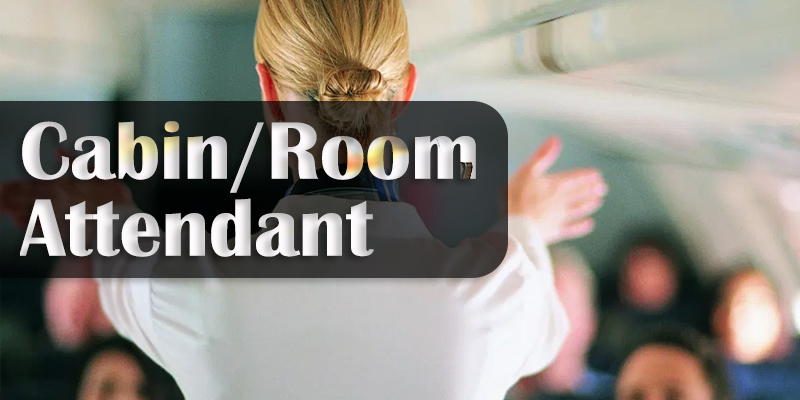
Trade Type
Below is the Trade Theory syllabus for the ITI Trade "Cabin/Room Attendant" in English, based on the context provided earlier. Since "Cabin/Room Attendant" is not a standalone trade under the NCVT framework but aligns with hospitality-related trades, this syllabus is tailored to the role’s requirements (e.g., room maintenance and guest services in hotels, airlines, railways, or cruise ships). It focuses on the theoretical knowledge needed for the job.
Trade Theory Syllabus for ITI Trade "Cabin/Room Attendant"
- Introduction to Cabin/Room Attendant Role
- Definition and significance of the Cabin/Room Attendant in the hospitality and transport industries.
- Responsibilities: cleaning, maintaining cabins/rooms, and assisting guests.
- Overview of employment opportunities in hotels, airlines, railways, and cruise ships.
- Hygiene and Sanitation
- Importance of personal hygiene: grooming, uniform standards, and hand washing.
- Principles of sanitation in cabins, rooms, and public areas.
- Types of cleaning agents: detergents, disinfectants, and their safe use.
- Methods to prevent cross-contamination and maintain infection control.
- Cleaning Tools and Equipment
- Classification of cleaning tools: brooms, mops, brushes, and dusters—用途 (uses) and features.
- Functions of equipment: vacuum cleaners, floor polishers, washing machines.
- Safe handling and storage of cleaning chemicals and tools.
- Basic maintenance of equipment to ensure operational efficiency.
- Room Setup and Maintenance
- Techniques of bed making: hospital corners, duvet folding, and layering sheets.
- Arrangement of room amenities: toiletries, towels, water bottles, and stationery.
- Furniture care: dusting, polishing, and minor upkeep.
- Procedures for inspecting rooms/cabins and reporting damages or repairs.
- Guest Services
- Basics of guest interaction: greeting, politeness, and understanding needs.
- Handling common requests: extra bedding, toiletries, or refreshments.
- Protocols for managing lost and found items: documentation and reporting.
- Importance of confidentiality and privacy in guest areas.
- Safety and Emergency Procedures
- Fire safety: types of extinguishers, their uses, and evacuation routes.
- First aid knowledge: treating cuts, burns, and fainting incidents.
- Security measures: identifying suspicious activities and ensuring guest safety.
- Accident prevention: safe lifting techniques and avoiding hazards.
- Hospitality Industry Overview
- Structure of hospitality operations in hotels, transport, and tourism sectors.
- Role of the Cabin/Room Attendant in coordination with housekeeping, front office, and maintenance teams.
- Industry standards: cleanliness, guest satisfaction, and time management.
- Quality Standards
- Criteria for room/cabin cleanliness and presentation (e.g., spotless surfaces, odor control).
- Identifying poor quality: stains, dust, or malfunctioning amenities.
- Corrective actions to meet hospitality benchmarks.
- Basic Entrepreneurship
- Opportunities for self-employment in housekeeping or cleaning services.
- Understanding supply costs: cleaning materials, linens, and equipment.
- Basics of customer service for small-scale hospitality ventures.
This Trade Theory syllabus provides a solid foundation for understanding the duties of a Cabin/Room Attendant, emphasizing hygiene, guest service, and safety. It aligns with the broader hospitality training framework under NCVT and prepares students for practical application in real-world settings. Let me know if you’d like further adjustments or additional details!
- 5 views